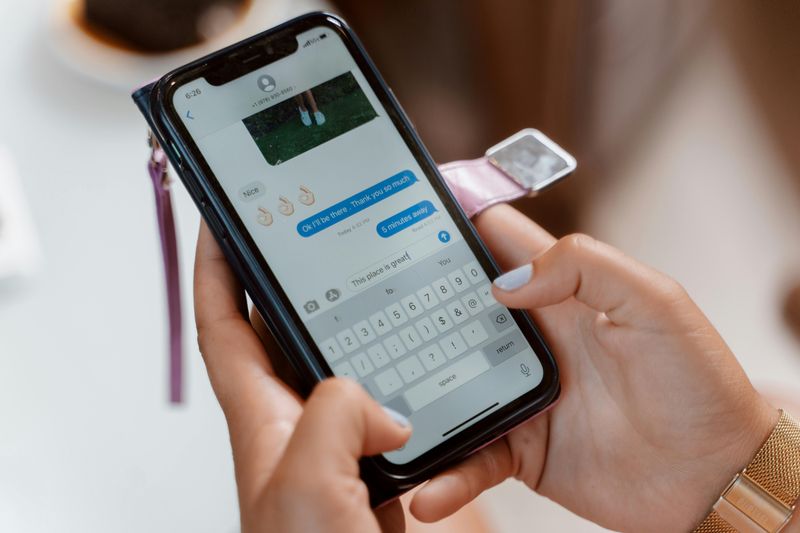10 Unspoken Rules Everyone Secretly Follows

We all navigate a complex web of unwritten social guidelines every day without even realizing it. These silent agreements keep our interactions smooth and our society functioning. From elevator etiquette to text message timing, these unspoken rules shape how we behave around others, even when no official rulebook exists.
1. You pretend not to notice when someone trips in public

The social contract kicks in immediately when a stranger stumbles nearby. Eyes dart away, conversations suddenly become fascinating, and everyone collectively agrees to ignore what just happened.
This mutual fiction preserves dignity and prevents unnecessary embarrassment. The only acceptable response is offering help if the fall looks serious.
Most fascinating is how universal this response is—across cultures and generations, we’ve all silently agreed that pretending not to see someone’s momentary clumsiness is the kindest thing we can do.
2. You maintain the airplane armrest hierarchy

Air Travel Rule #1: Whoever’s stuck in the middle seat automatically earns both armrests. No debate, no exceptions—just basic plane etiquette.
Window seat passengers enjoy the view and something to lean against. Aisle seat travelers get extra legroom and easy bathroom access. The poor soul sandwiched in the middle deserves something for their trouble—hence the armrest privilege.
Violating this sacred arrangement brands you as an air travel amateur. Flight attendants notice these breaches too, silently judging as they serve drinks to passengers who understand the delicate balance of shared personal space.
3. You pretend to read the nutritional information when someone catches you staring

Caught looking at someone a second too long? Suddenly that nearby cereal box becomes absolutely fascinating. The nutritional content of random products offers the perfect escape from awkward social situations.
This swift redirection works because it’s believable—everyone reads labels sometimes. The key is the seamless transition from accidental staring to studious consumer research without acknowledging the switch.
The beauty of this tactic lies in its versatility. Restaurant menus, event flyers, and even safety notices transform into captivating literature the moment someone notices your wandering gaze. Both parties typically participate in this charade, pretending the initial stare never happened.
4. You wait exactly three rings before answering a phone call

Answering on the first ring screams desperation. Letting it ring six times suggests indifference. The sweet spot? Three rings—showing you’re available but not anxiously hovering over your phone.
This unspoken timing rule applies even when holding your phone, watching the incoming call. Many people literally count rings while staring at the screen before allowing themselves to swipe.
The psychology behind this timing ritual reveals our complex relationship with accessibility. We want to appear reasonably busy yet responsive, striking that perfect balance between independence and reliability. This three-ring rule adjusts slightly for professional contexts, where promptness might take priority over appearing casually unbothered.
5. You nod at strangers when hiking on trails

Trail acknowledgment transforms completely from city sidewalk behavior. The same people who avoid eye contact during their morning commute suddenly become friendly trail-greeters when surrounded by nature.
This brief connection—usually a nod, quick smile, or quiet “morning”—serves as mutual recognition of shared experience. The further from civilization, the more elaborate the greeting becomes, evolving from nods to actual conversations in remote areas.
Hikers who ignore this ritual often receive confused or slightly offended reactions. The unwritten rule suggests that wilderness settings temporarily suspend normal urban anonymity rules, creating a micro-community where brief acknowledgment becomes not just accepted but expected.
6. You pretend not to hear private conversations in public spaces

There’s a special kind of hearing that switches on when strangers argue nearby: selective deafness. We catch every juicy detail, but pretend we’re blissfully unaware—because manners demand it.
This auditory charade involves several techniques: sudden interest in phone screens, mysterious earplug adjustments, or developing intense focus on distant objects. The rule extends to never referencing overheard information later, even if relevant.
Interestingly, this social agreement works both ways. The people having private conversations in public often behave as though invisible sound barriers protect their words, completing this mutual delusion that benefits everyone’s comfort and dignity.
7. You fake-type when someone watches your computer screen

Random keyboard tapping begins immediately when a coworker hovers too close. This performance art involves striking keys purposefully while navigating away from social media or personal emails to work-appropriate screens.
The fake productivity routine includes furrowed brows, occasional mouse clicks, and sometimes muttering about deadlines or spreadsheet formulas. Both parties understand the charade—the observer pretends not to notice the rapid screen switching while the typist pretends to have been working diligently all along.
This workplace pantomime happens countless times daily in offices worldwide. The ritual preserves professional appearances without requiring uncomfortable confrontations about privacy or actual productivity expectations.
8. You wait for everyone to receive their food before eating

That delicious plate is right in front of you, but you don’t dig in just yet. Even though you’re starving, you wait patiently for everyone else to get their food. It’s one of those unspoken rules we all follow without thinking.
This dining synchronization shows consideration and prevents the awkwardness of some people watching others eat. Exceptions exist—the “please start, don’t let it get cold” permission slip may be granted, especially in larger groups where serving everyone takes significant time.
Parents actively teach this rule to children, making it one of the few unspoken rules that actually receives explicit instruction. The principle extends beyond restaurants to home dinners and even casual pizza gatherings, where reaching for the first slice before everyone’s settled crosses an invisible social boundary.
9. You double-check texts for tone before sending

The mental proofreading process activates before hitting send on any message that could be misinterpreted. Period placement, exclamation point counts, and emoji selection undergo scrutiny that would impress literary editors.
This invisible labor prevents countless arguments triggered by text tone. “Sounds good” versus “Sounds good!” carry entirely different emotional weights that everyone somehow understands without formal training.
The most time-consuming reviews happen with professional contacts and new romantic interests, where message crafting becomes strategic communication rather than casual chatting. Many people even maintain different texting personalities for different relationships, automatically adjusting formality, punctuation, and abbreviation usage based on the recipient.
10. You push elevator buttons that are already lit

The button’s already lit—your floor’s been called. But still, almost everyone can’t resist giving it a tap. It’s a pointless little ritual, but hey, it makes us feel like we’re in control.
This redundant button-pushing serves as both physical confirmation and social signaling—showing others your destination while psychologically taking control of your journey. The behavior persists despite everyone recognizing its pointlessness.
Elevator designers understand this quirk so well they’ve created buttons with satisfying tactile feedback specifically to accommodate this irrational but universal behavior. The phenomenon extends to pedestrian crosswalk buttons and door-close buttons, creating an entire category of redundant button-pressing that humans find strangely satisfying.

Comments
Loading…